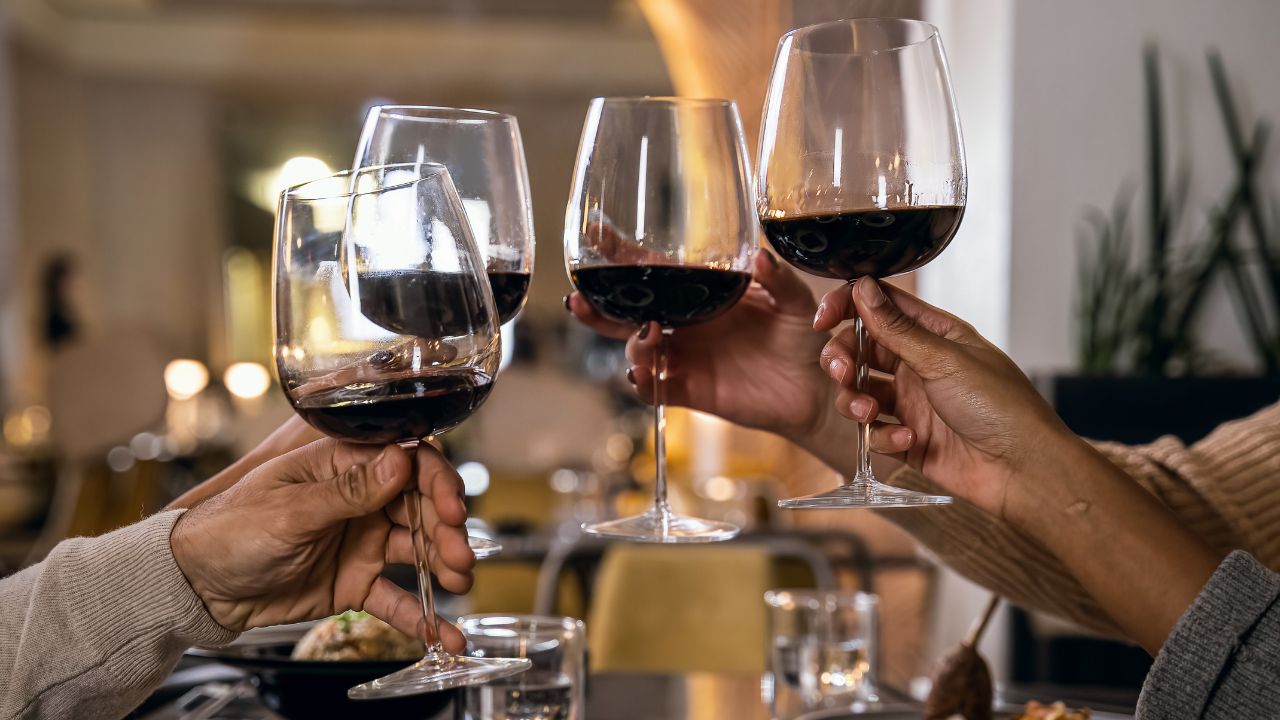Who should propose the toast?
Who should propose the toast? Have you ever wondered about that? It’s one of those questions that few people ask, because it seems like a minor detail. Yet knowing who has the right and, in some cases, the duty to propose the toast means respecting one of the most refined rules of hospitality and wine etiquette.
In this article, we will focus exclusively on this detail. We’ll look at the different contexts in which a toast may take place, from elegant dinners to casual lunches and even corporate events, to understand who has the responsibility to propose the toast.
Who has the task of proposing the toast?
When we’re asked: “who should propose a toast?” the first answer we can give is: “It depends”.
That’s because the rules change depending on the occasion or the situation in which the toast takes place. There isn’t a single rule that applies to every context: it’s the context that determines who has the task of proposing the toast.
According to the Wine Etiquette, the act of proposing a toast is considered one of the fundamentals of hospitality and good manners: a gesture that communicates respect and attention toward the people we share the table with, whether they are guests, friends, or family.
For this reason, below we’ll look, case by case, at who should propose the toast in the various contexts in which a toast may take place.
Who proposes the toast: private dinner
Imagine one of those dinners where guests are invited to someone’s home, or when you invite someone out to dinner, even at a restaurant. In these situations, it is always the host (or the person doing the inviting) who should propose the toast. He or she is the one to symbolically kick off the convivial moment, welcoming the guests and thanking them for being there: an act of gratitude, courtesy and hospitality.
For this reason, no guest should propose the toast in place of the host. A guest may eventually propose a second toast at the end of the meal, to thank the host in turn for their hospitality and company. Even in this case, however, it is advisable to let the final gesture always belong to the host, thus respecting the “hierarchy” that characterizes the initial toast.
The same principle applies at a restaurant. If you are the one inviting others, you should be the one to propose the toast, at least the initial one. This holds true regardless of the type of dinner elegant, informal or business. The toast remains a gesture of welcome and hospitality, and following this rule helps maintain elegance and harmony at the table.
In short, wine etiquette teaches that the (first) toast is always the host’s act.
Who proposes the toast: wedding
During a wedding, the first toast is a symbolic moment of great importance. By tradition, the task of proposing the toast falls to the newlyweds, to officially open the celebration and share with their guests a message of joy, gratitude for their presence and best wishes for their new “journey” together.
In any case, wine etiquette allows for best man/maid of honor or someone particularly close to the couple, such as the parents, to propose a toast, either at the beginning or at the end of the meal. This gesture, if done with elegance and sincerity, can be especially appreciated by the couple, particularly if it goes beyond the usual formal wishes and is accompanied by heartfelt and meaningful words.
The toast by the newlyweds marks the official start of the celebrations and carries a symbolic value that goes beyond the simple act of raising a glass: it is the first act of sharing the joy of the day.
Who proposes the toast: business lunch/dinner or corporate event
At business lunches or dinners, as well as at corporate events, the toast follows slightly different rules compared to private occasions or weddings. In these contexts, the person of highest rank or with the greatest responsibility, such as an executive or manager, is the one designated to propose the toast. The gesture serves to formally open the event, thanking all participants for their presence and emphasizing the importance of the gathering.
The toast in a professional setting is not just a symbolic act: it is also a tool of professional courtesy. The person raising the glass conveys respect and acknowledgment toward the guests, creating a positive and collaborative atmosphere.
Who proposes the toast: informal meal
In an informal setting, among close friends and family, the rules of etiquette become much more flexible, but some considerations remain essential. On these occasions, anyone can propose the toast, without necessarily following hierarchies or specific roles.
Even in a more relaxed context, the toast still serves a social function: it brings people together, creates harmony and conveys a sense of mutual respect. Additionally, there is one very important rule to follow: the toast should be proposed with courtesy, attention and a thought directed toward the group, never with the intention of self-promotion or seeking the spotlight.
These are the main guidelines to determine who, in various occasions, has the task of proposing the toast.
If you liked our article and if you want to continue to receive news, updates and curiosities about the world of wine, subscribe to the Wineshop.it wine newsletter. Lots of content and offers await you!











